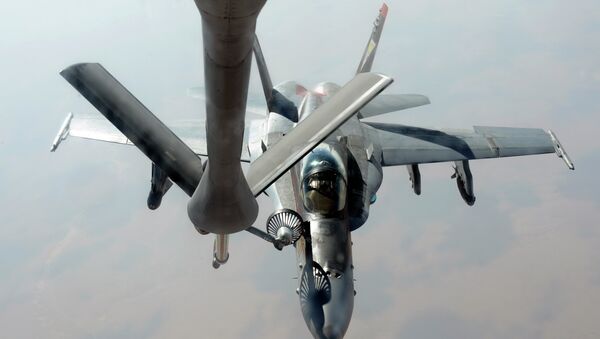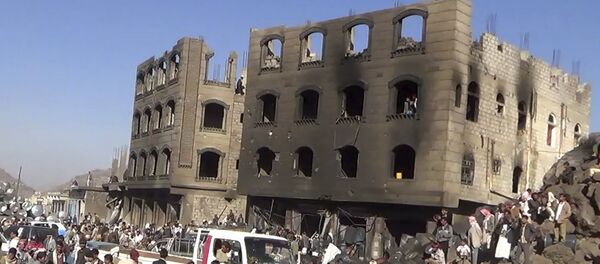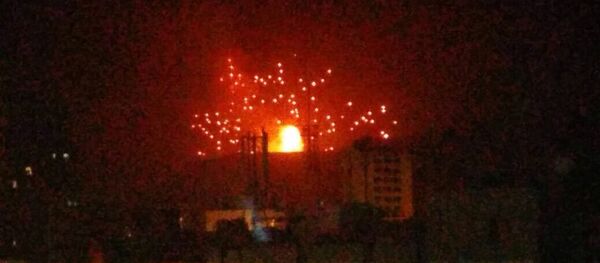According to the latest figures provided by the United Nations, over 500 people have been killed during the last two weeks of fighting in Yemen. Another 1,700 have been injured. A Saudi airstrike on Monday killed 29 civilians in a displaced persons’ camp, and Shiite rebels continue to hold strategic positions along Yemen’s coast, most notably, the city of Aden.
Despite support for what has been dubbed Operation Decisive Storm, it’s a conflict that the Obama administration has so far kept its distance from, wary of prolonged involvement in another Middle Eastern campaign. But the US military is gradually taking steps toward a more active role, now sending American refueling planes to assist Saudi aircraft.
"We have given [US Central Command] the authority to do tanking," a senior military official, speaking on condition of anonymity, told reporters.
The decision comes with a few caveats. Any refueling will take place outside of Yemeni airspace, and the Saudi Arabian government is expected to reimburse the US for any assistance it requests.
The US has also been providing satellite and aircraft intelligence for the campaign, which has helped coalition forces monitor the movement of the rebels, according to the official.
"We’re helping the Saudis understand what’s happening on their border. They’re looking for evidence of Houthi ground incursions," the official said, adding that the rebels are "poised above Aden and we’re trying to help the Saudis build a picture of that."
He insisted, however, that the US military was not providing specific targeting information, a claim that Washington has been quick to assert as human rights groups have criticized the civilian death toll of the bombings.
Other military officials have also noted that they expect Washington to eventually provide the Saudis with more bombing artillery.
This progressively growing participation of the US military could signal Washington’s vested interest in the conflict. Before the recent wave of violence broke out, Yemen had been the Obama administrations best example of how a counterterrorism campaign could be successfully fought. The rebellion changed that perspective.
The US had also depended on the Yemeni government to cooperate in its drone campaign against al-Qaeda’s forces. The forced removal of an American presence in the country has left "our capability diminished," the official said.
And, at the same time, the continued fighting has also hindered al-Qaeda’s ability to plan attacks against Western targets.
"The initial evidence is actually that the Houthi advance has caused their external plotting to be sidelined while they figure out how they’re going to deal with the internal vestiges of what appears to be an emerging civil war," the official said.
On the question of whether the Saudi government was planning an all-out ground invasion of its neighbor, the official stressed that the increased troop presence along the border was purely precautionary.
"I think they are arraying their forces along the border to prevent a Houthi incursion," he said. "They’re postured defensively."





